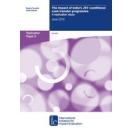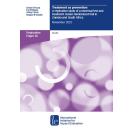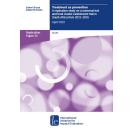
The impact of India's JSY conditional cash transfer programme: a replication study
3ie Replication Paper 6
In this study, Natalie Carvalho and Slawa Rokicki conduct an internal replication of the first impact evaluation of India’s Janani Suraksha Yojana (JSY) intervention, a large-scale conditional cash transfer programme designed to incentivise the use of formal birthing facilities. The original impact evaluation by Stephen S. Lim, Lalit Dandona, Joseph A. Hoisington, Spencer L. James, Margaret C. Hogan and Emmanuela Gakidou from 2010 showed positive effects of the programme across India. JSY is one of the largest programmes of its kind in the world. Given its scale, any study related to this conditional cash transfer programme is crucial to understanding the effectiveness of the programme in improving maternal and neonatal health outcomes and reducing existing inequities in access. Understanding the programme’s effectiveness is important for policymakers in India and is also relevant for other countries with low rates of institutional delivery and poor reproductive health outcomes.
Specifically focusing on the exact matching analysis, the replication study by Carvalho and Rokicki reexamines both the original study’s methodological approach and the robustness of the research to various model specifications. In the measurement and estimation analysis, the researchers check the original matching algorithm and explore state-level multi-level modeling to test the robustness of the original research. They also explore differences in JSY’s implementation, to see if these differences influenced the original research findings.
The researchers find the original results robust to changes in model specifications and analysis. The study does find state-level differences in health coverage and mortality outcomes, which should be considered in future analyses of the programme. The researchers conclude that the effect of JSY on health outcomes may be understated when averaged over all states and districts, especially when accounting for the implementation lag across the country.
3ie also invites formal replies from the original authors. If received, the reply will be posted on the 3ie website alongside the replication study.

